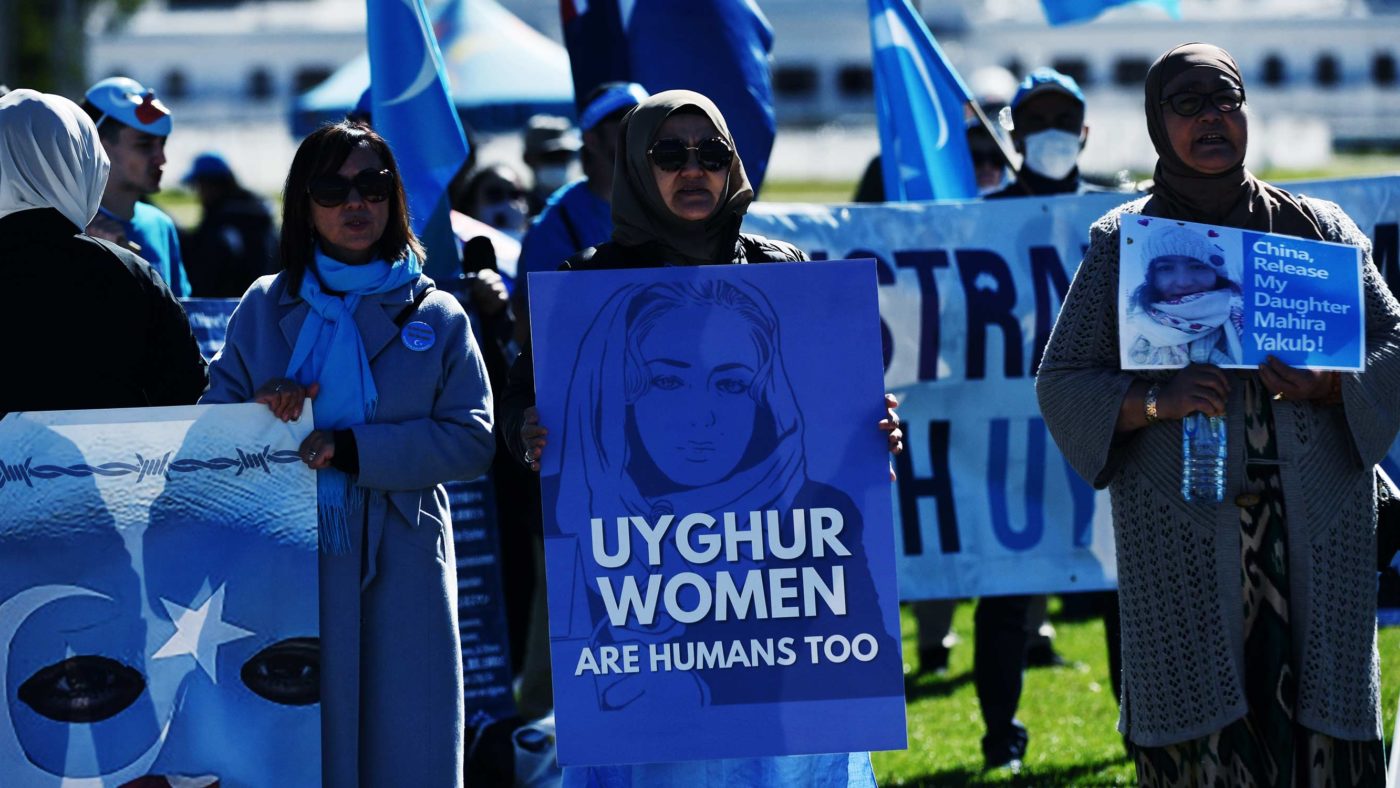The UK’s decision yesterday to impose Magnitsky sanctions against four Chinese government officials is extremely welcome, but long overdue – and not enough. It’s a good start, but we must hope it signals the intention of further action and not just a fig-leaf to critics of the Government’s China policy.
Made in concert with the European Union, Canada and the United States, this action contains the seeds of a much-needed coordinated approach from the free world to China. When countries act alone, China can retaliate, play countries off each other and pick them off one by one, as it has in the past. When the world’s major democracies stand together and act as one, it is much more powerful. For that reason, the UK’s multilateral approach is welcome.
It comes a week after government published its Integrated Review of defence, development and foreign policy, which has been criticised by some for a ‘have your cake and eat it’ approach on China. There’s some truth to that charge: the document recognises China’s increasing assertiveness as “the most significant geopolitical factor of the 2020s” and “the biggest state-based threat to the UK’s economic security” and yet proposes more bilateral trade and investment. It contains plenty of very inspiring words about being a “force for good” in the world, championing human rights, liberal democracy and open societies around the world and defending our values at home, yet at the same time describes China as “an increasingly important partner” in tackling global challenges.
Progress has been made in shifting mindsets since the ill-fated ‘Golden Era’ of Sino-British relations, but the question is how much? The willingness to condemn China’s gross human rights violations in public is a welcome advance from just a few years ago, but statements alone are not enough – which is why these sanctions represent a concrete step forward.
The Integrated Review emphasises the importance of ‘Magnitsky sanctions’ in the toolkit for defending human rights around the world. These are named after the Russian tax advisor Sergei Magnitsky who was tortured to death in a Russian jail. The brainchild of Magnitsky’s client, American investor Bill Browder, who himself was expelled from Russia, they have been adopted by an increasing number of countries and essentially consist of targeted sanctions – travel bans and asset freezes – on individual officials responsible for human rights violations.
Had I been writing this article before yesterday afternoon, I would have yet again been asking the question: why are we not deploying Magnitsky sanctions against one of the world’s worst violators of human rights – China? It is a question that has been asked repeatedly by MPs on all sides of the House of Commons every single time China, the Uighurs or Hong Kong have been debated. Finally – better late than never – we have an answer we can welcome.
As the Foreign Secretary said yesterday, “the evidence of widespread human rights abuses in Xinjiang cannot be ignored – including mass detention and surveillance, reports of torture and forced sterilisation”.
The sanctions announced by the UK apply to four officials in the Xinjiang region and to one state entity. The officials are Zhu Hailun, Xinjiang’s former Secretary of the Political and Legal Affairs Committee; Wang Junzheng, Deputy Secretary of the Party Committee; Wang Mingshan, Secretary of the Political and Legal Affairs Committee and Chen Mingguo, Vice Chairman of the Xinjiang government and Director of the region’s Public Security Department. Also in the dock is the entire Public Security Bureau of the Xinjiang Production and Construction Corps – a state run organisation responsible for security and policing in areas administered by the XPCC.
But there is one name missing from this list who should immediately be added: Chen Quanguo, the Chinese Communist Party Secretary in Xinjiang and the architect of the genocide of the Uighurs. He was previously the Party Secretary in Tibet and responsible for an intensification of repression there. It is bizarre that he is not yet among those sanctioned.
There are other officials who in due course should be added to the list, not least those who who have conspired to destroy Hong Kong’s freedom and autonomy in clear breach of an international treaty. Shadow Foreign Secretary Lisa Nandy was right to ask yesterday: “Where are the sanctions on officials in Hong Kong when the US took this step this week? We should be taking a leadership approach, given our historic commitments.”
We should go further, not only sanctioning individuals but refusing to trade with or allow investment from Chinese companies that are complicit with human rights violations, along with those that are strategically important to the Communist Party regime and the People’s Liberation Army. We should diversify our supply chains and ensure that even if we maintain some trading relationship with China, we do so in a way that does not compromise our values or national security. We should completely recalibrate our relationship with the Chinese regime for as long as it perpetrates genocide, flouts international agreements and threatens our own security. Sanctioning four individuals is a very welcome start – but let it be a sign of more to come.
Click here to subscribe to our daily briefing – the best pieces from CapX and across the web.
CapX depends on the generosity of its readers. If you value what we do, please consider making a donation.


